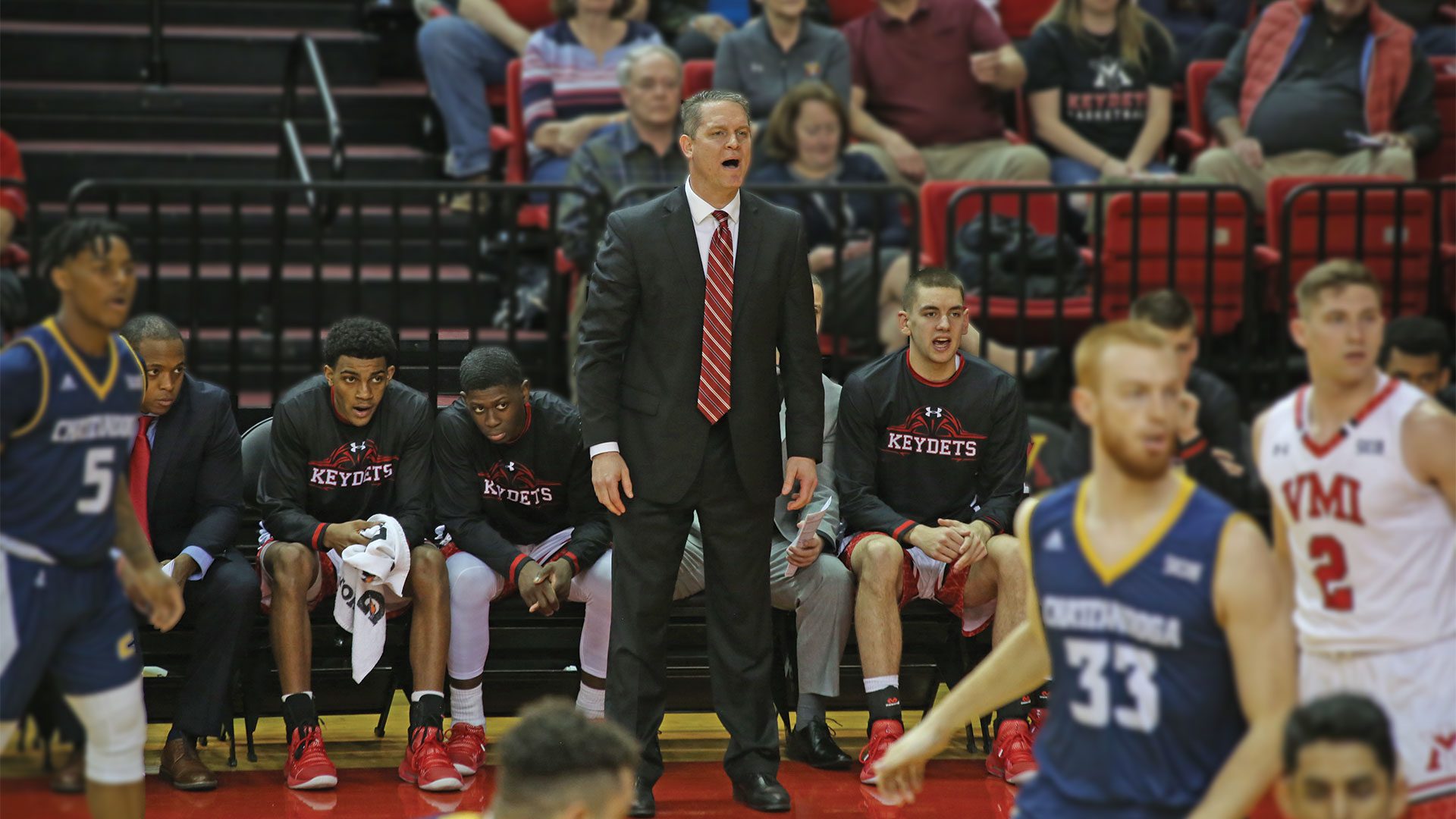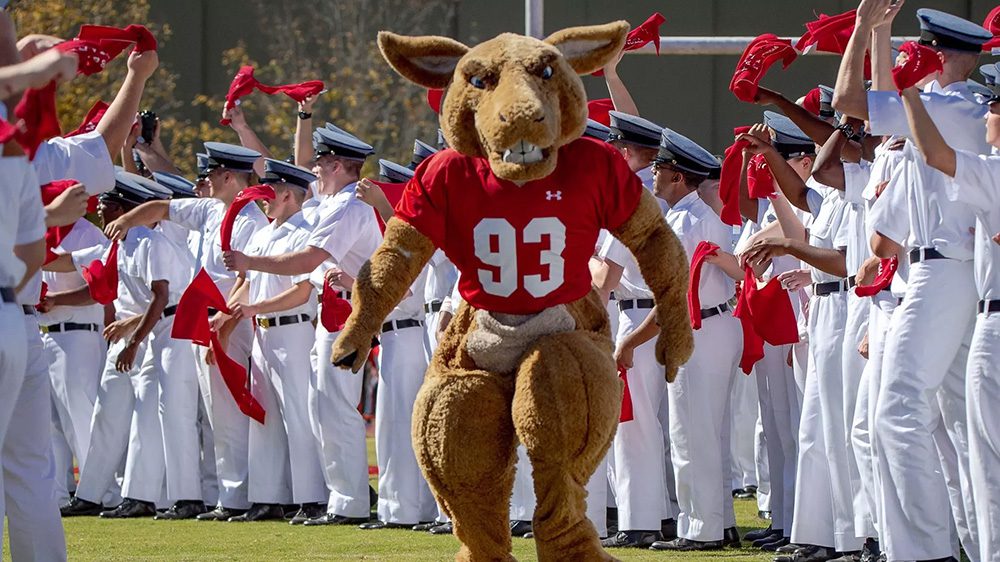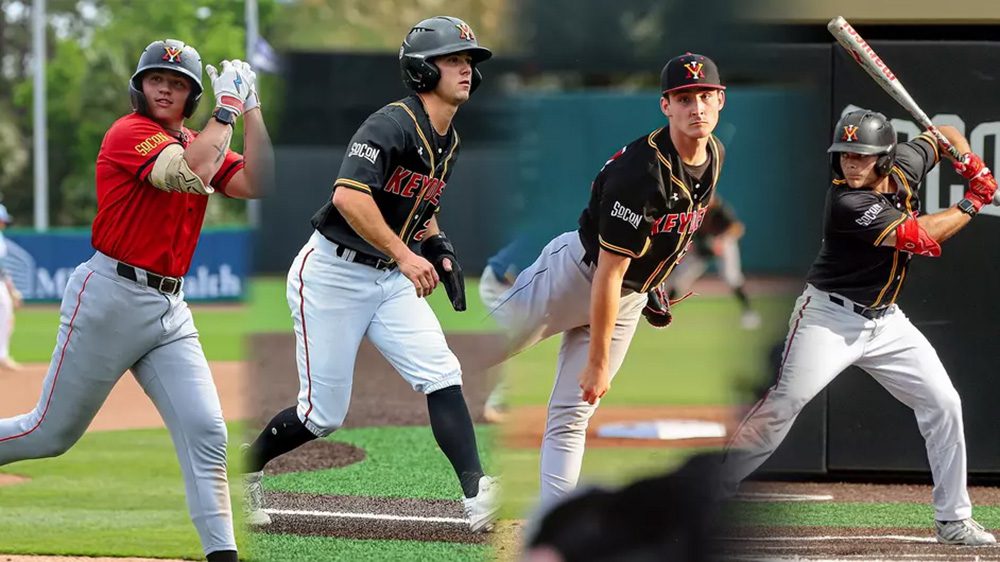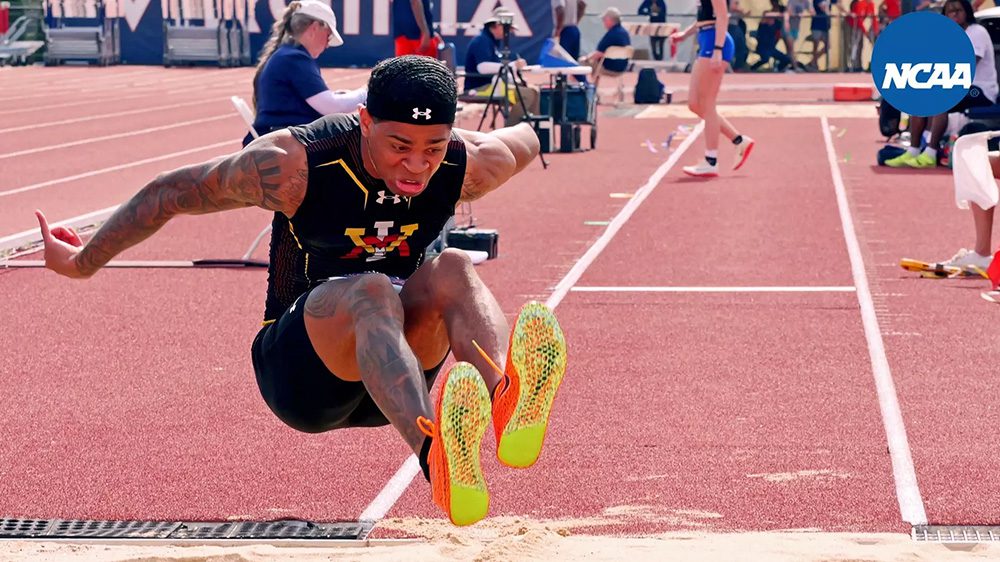Dan Earl, head Keydet basketball coach, understands the dedication and focus grown on a basketball court. A former guard at Penn State, Earl spent six seasons with the Nittany Lions. Six – because knee and back injuries necessitated two redshirt seasons. He followed his college career by playing in European leagues and stateside. “I love the game of basketball,” Earl said, laughing that he might still “be trying to play at [age] 44” had a knee injury not caught up with him.
The fact that injuries can be mentally devastating for young athletes is something Earl appreciates firsthand. He remembers – pre-injury – dreading a tough college practice. After an injury sidelined him for a season, Earl said he would have given almost anything to just “practice again. You realize how much you love it. [Being injured] gives you perspective.”
He uses the perspective gained through his personal experience – as a player, plus coaching at both Penn State and for the Naval Academy – in coaching and mentoring his team. With empathy, he helps his athletes, both the healthy and the injured – and the Keydets had more than their fair share of the latter this past season – realize that the scores are important but life continues after the final buzzer.
Building a winning team “is a process,” said Earl, which is not always easy to remember “because there’s a score at the end of the game each time, and it’s hard to come out on the losing end.” He also has to “keep in mind that there’s a greater cause here. We want to compete the right way – the VMI way. We’re not cutting corners to take kids with low grades, or taking kids with bad character.”
In doing things the right way, Earl teaches his team that “everything matters.” When running sprints, players start with their toes behind the line – not on it, or in front of it. For drill work, it means dribbling hard and snapping passes. Discipline in these small things can equal last-second success during games. And while practice obviously translates to game performances, Earl doesn’t stop there. “If we’re going into a restaurant and someone’s behind you, hold the door for that person. That’s the way we want to operate across the board.”
The basics for an “everything matters” team begin with recruiting what he calls “high character” players. He and his coaching staff target hundreds of players and cull those leads down to two or three future Keydets. Figuring out if grades and basketball skills are up to VMI’s standards is the easy part. To assess a possible recruit’s character, Earl often asks coaches and teachers directly. “No one’s going to badmouth their kid,” he noted, but if the response is along the lines of, “‘He’s still growing in that department,’ that’s all you need to hear.”
The recruiting process involves hours on the road, the phone and social media scouting and keeping in touch with coaches, parents and the recruits themselves – all conducted within the bounds set by the NCAA each year. “Who you surround yourself with” is tremendously important, Earl said. In this case, he is referring to his staff, who “do everything under the sun,” from recruiting to watching hours of game films to building relationships with players.
Assistant coach Kevin Carroll – who came to VMI from the head coaching position at Maryville University-St. Louis, is in his second year with the Keydets. Carroll has a “great basketball mind. He sees the game really well,” Earl said. “He’s been a head coach before, so he’s someone I can lean on to look for advice.” Carroll is also impactful to the players – getting to know them and helping them to “improve as individuals.”
Former Keydet guard Austin Kenon ’11 – who still holds the all-time VMI record for most three-pointers – is also in his second season as an assistant coach. Aside from building “tremendous relationships” with players, he can give parents and recruits an insider perspective on cadet life, Earl said, and is able to support current players “when they’re going through some tough days.”
Steve Enright, previously an assistant coach at Bridgewater College, is the newest addition to the hoops coaching staff. He has worked very well with players, Earl said, and is a “tireless recruiter.” Enright puts in lots of time on the phone and with social media “in order to target the right guys. He’s done a really good job.”
Not every recruit is the right fit for VMI, but for those who choose to take advantage of the opportunities, “there are a million positives to VMI.” The Institute truly prepares his players – whom he calls “the guys” – for their futures off the hardwood. “The life lessons and leadership skills that you learn at a place like VMI are phenomenal for your future,” Earl said.
A big difference between other colleges and VMI is that players are “balancing a third big item.” At most universities student-athletes balance “books and athletics,” Earl said. “Both take quite some time. Obviously you want to get a great education, and basketball is a full-time job sometimes. When you’re at a military school, you have the books, the basketball – and then you have all the military requirements.”
VMI’s most notable difference, however, may actually come from off post: The Institute’s unparalleled alumni base. When Earl says he’s “never seen anything like VMI alumni,” it is worth noting that Earl himself is a “bleeding blue and white” Penn State alumnus – and he coached at the Naval Academy, a school also possessing an extremely dedicated alumni body.
His players receive fantastic support from the alumni, much of it through the Alumni Agencies’ Keydet Club. The Keydet Club raises money for athletic scholarships at VMI. Many alumni donate financially to support VMI athletics, but they often take the extra step of getting involved with the players by not only attending games but getting to know players personally. “We’re very appreciative of all the support they give,” Earl said about the Keydet Club. “They are phenomenal people, who believe in our players and who are passionate about VMI.”
The alumni base is built through common experiences at VMI. The small numbers help cadets to grow closer during their time in barracks, but there’s more than just the Institute’s size. “You really bond” through the adversity, Earl said. “There’s a brotherhood that you form here at VMI – going through that – with your classmates.” That bond eventually transcends class years, and Earl often speaks with basketball alumni who got a foot in the door – career-wise – because they attended VMI. Alumni do a “really do a good job of taking care of one another,” Earl said. VMI’s preparation added to the alumni network equals being “set … up for the next 40 years of your life.”
Athletics add to VMI’s groundwork. “You can’t go through life” doing well at everything, Earl pointed out. Tough times will come to everyone, and athletes “find that out real quickly. You take some on the chin,” Earl said. “[Basketball] is synonymous with other walks of life.” The winning and losing inherent in sports teaches athletes how to cope with and rebound from adversity in all walks of life. The foundation Earl’s “guys” build in Cameron Hall will go on to help them in their careers and personal lives going forward.
Someday, every basketball player takes a final walk off the court, and Earl hopes he is impacting the somedays of his athletes. “The job of being a basketball coach is certainly winning games and building a successful program,” Earl said, but it is also “molding young men, so that when they’re a husband or a father or an employee you had a little bit of an effect on what kind of person they turned out to be.”
-

Molly Rolon Editorial Specialist




